Sports Movie Cliches That Hollywood Will Never Tire Of
It isn't always as easy as one side winning and one side losing...

Introduction
Every loves a good sports film don't they? I would assume anyone reading this post does, otherwise I would be wondering why you had chosen this post to read on Vocal Media. Anyway. At the their best, sports films can be some of the most entertaining, enthralling and inspiring pieces of cinema that you are likely to witness in your lifetime. From movies based on true stories to stories of complete fiction, some sports films know just how to hook you in. How do they manage to do this? By using certain tropes or cliches that have worked in previous sports films and have proven to be successful, thus necessitating their usage in the next great sports film. The following post will present and explain a few of the most prevalent tropes found in sports movies, providing examples taken from the genre. All of these cliches have carried through the decades, for better or worse, but all I am here to do is present and explain them to you. Sit back, relax and take in this article about some of the sports cliches that Hollywood will never tire of.
The Underdog(s)
This particular sports cliche is the one that everyone will be able to name. The underdog story is one of the most popular cliches favoured by both cinema audiences and Hollywood executives. After being written off by both friends and foes, the underdog trains hard and manages to upset the odds and win the day.
The film that embodies the underdog cliche more than any other is 1976's Rocky. Rocky Balboa, a jobbing journeyman boxer, is given a chance to fight the world heavyweight boxing champion Apollo Creed. Through hard work and training from fiery trainer Mickey and Adrian's love, Rocky takes the world champion to his limit. Despite losing the match to Creed, Rocky wins the respect of the people.
Just as Rocky the boxer earned the love of the people on the silver screen, cinema audiences loved Rocky the film just as equally. Rocky would become the most popular film of 1976, grossing $225 million after being made on a slim budget of $1 million. The film would also win the Academy Award for Best Picture the following year. The success of Rocky would form a franchise with five sequels and a successful sequel series. As an example of how successful this underdog story turned out to be, a Rocky Balboa statue currently stands in Philadelphia today.
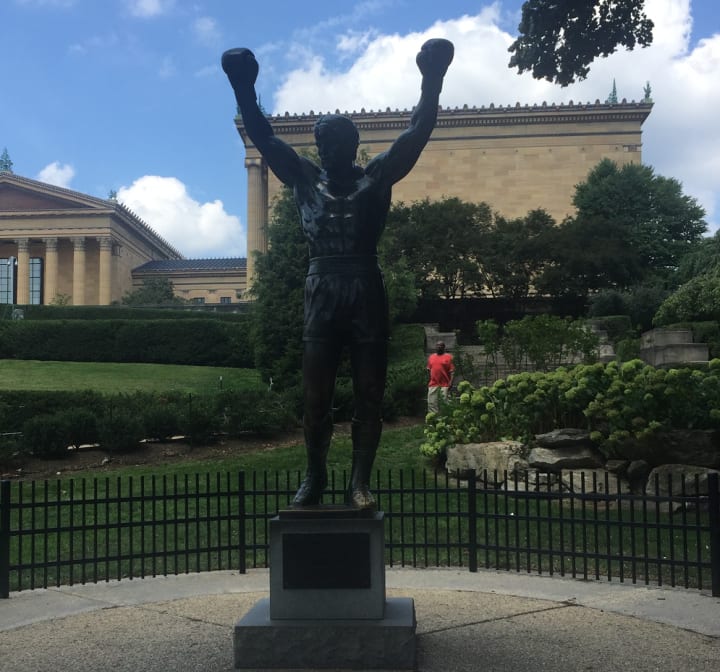
Outside of Rocky, other sports films that have utilised the underdog story to great success include The Mighty Ducks and Dodgeball, which had the subtitle of A True Underdog Story. Cinderella Man is another boxing film that uses the underdog story to great success. Based on a true story, Cinderella Man sees Russell Crowe portray real-life boxer James J. Braddock, who came back from losing everything during the Great Depression to win the championship gold. If these examples prove anything, it is that people love themselves an underdog.
The Down-On-His-Luck Coach
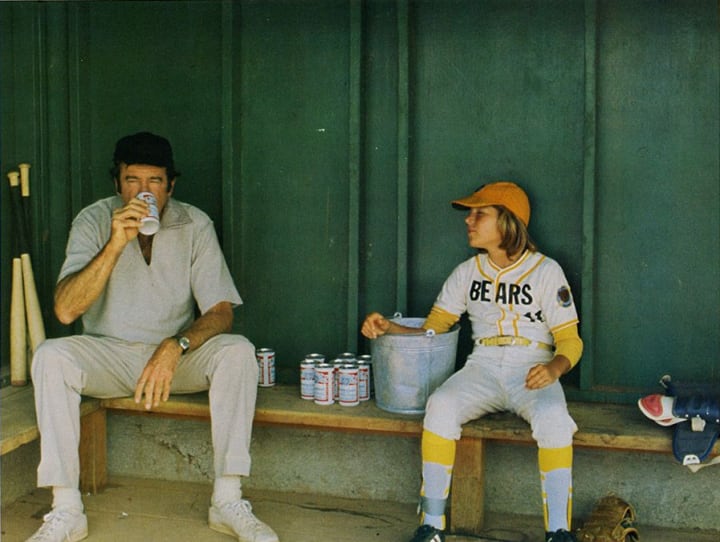
Sometimes the underdog in a sports film isn't an athlete or a team. Many sports films choose to feature the coach of that same athlete or team as their main character. Sometimes, these coaches are inspirational, exemplified by Ken Carter in Coach Carter or Billy Beane in Moneyball. These coaches inspire their teams to glory. They refuse to give up on their goals, even when the going gets tough. However, some sports films choose to focus on coaches who begin the movie in a bad way. These coaches may be going through divorces, might be alcoholics and drug users, or may just be going through a period of bad luck.
The film typically begins with the coach's underlying problems first being introduced to the viewing audience. The down-on-their-luck coach is soon put in charge of a struggling team. At first, the coach's attitude reflects on the team, with results initially failing to improve. However, as the film progresses, the coach starts to connect with his team/charge and rediscovers his love of his particular sport, ultimately leading to success for both the coach and his team/athlete.
At the lighter end of the scale (a coach merely going through a period of bad luck), you find Gordon Bombay from The Mighty Ducks. Bombay is a defence lawyer sentenced to community service coaching the Ducks Pee-Wee ice hockey team after being caught drunk-driving. Bombay himself is a former youth hockey player haunted by a moment in which he missed a penalty shot in a championship game, costing his team the trophy. Bombay first tries to help his team win by using negative tactics such as diving, drawing penalties and faking injuries. This tactic fails to work and only serves to anger his players. After some advice from his old mentor Hans, Gordon gets his boss to invest in the Ducks and begins to take the team's training sessions seriously. After adding some new players to the squad, the Ducks begin a winning streak that takes them to the championship game. Their opponents are Bombay's old team the Hawks, who are coached by Jack Reilly, the same man who coached Bombay. Reilly specifically blamed Bombay's missed penalty for the Hawks losing the championship all those years ago, so Gordon is out to prove him wrong.
Further down the scale is Morris Buttermaker from The Bad News Bears. Morris Buttermaker is a former minor-league baseball player who became an alcoholic in his retirement. He is recruited to coach the Bears, a Californian Little League team. The Bears are a team of misfits, literally comprised of players rejected and excluded from other rosters. As expected, Butermaker and the Bears do not get off to a good start, losing their first game without recording a single out. However, Buttermaker soon improves the team by adding sharp-tongued pitcher Amanda Whurlitzer and bad boy Kelly Leak. With these additions, the team's form improves, and they reach the championship game facing the top-ranked Yankees. During this championship match, Buttermaker realises that winning isn't everything and ends the game playing his benchwarmers, resulting in a narrow loss for the Bears.
At the far end of the scale is Jack Cunningham from 2020 film The Way Back. Cunningham is a construction worker asked to coach the Bishop Hayes high school basketball team, the school where he once served as the team's star player. However, problems with his father caused Cunningham to turn down a lucrative college basketball scholarship and quit playing basketball altogether. He is also an alcoholic, spending every night at the same bar. Cunningham takes over a team that only has enough players for one set of starters. Bishop Hayes gets off to a bad start, losing heavily to rival Memorial High School. However, Cunnigham soon starts to overhaul the team's tactics and training sessions, improving their fitness and playbook. Despite their initial reservations, the team's form begins to improve over time. Bishop Hayes eventually makes the end-of-season play-offs by winning a rematch with Memorial. However, in a slight subversion to the trope, Cunningham's alcoholism forces him to miss the team's first play-off due to being forced to attend treatment for his problems. Cunningham did manage to improve his team's fortunes but didn't manage to improve himself by the end of the film.
The No-Hopers
Just as many sports films choose to focus on a down-on-their-luck coach, others like to focus on a down-on-their-luck team. These teams are the No-Hopers: the teams that due to a lack of resources, training, personnel or history, are written off by their rivals and even themselves. However, despite their unfancied status, the No-Hopers ultimately prove everyone wrong, eventually leading to success or a more significant deal of respect.
Examples of teams that meet this trope include the Bad News Bears and Mighty Ducks. The Jamaican bobsleigh team in Cool Runnings are treated as a laughing stock when they turn up at the Winter Olympics. However, in the film's story, the quartet surprised everyone by finishing as high as 8th on their second run. Despite crashing out on their final run to finish last, the Jamaicans manage to earn their opponent's respect. In Dodgeball: A True Underdog Story, the Average Joe's Gym dodgeball team are at first a team of no-hopers, losing to a bunch girl scouts in their first match. However, with the guidance of dodgeball expert Patches O'Houlihan, Average Joe's reaches the final of the amateur dodgeball tournament in Las Vegas. In the final, Average Joe's defeats rival Globogym to win the $10,000 prize.
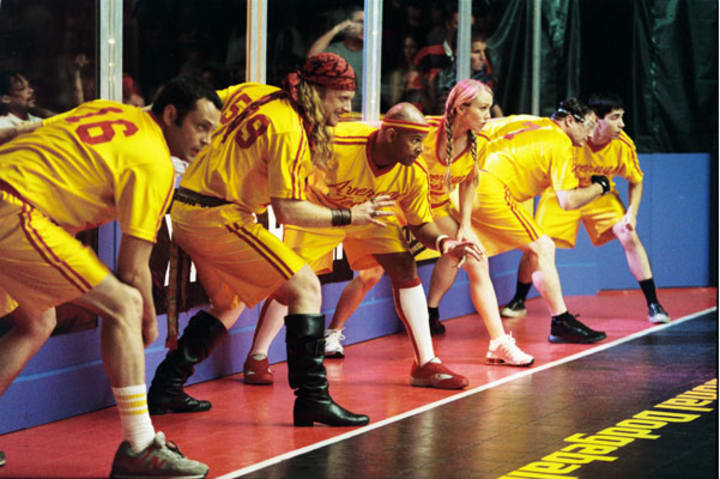
The trope of the No-Hopers is another facet of the Underdog. If you present a character or a team as unfancied but likeable, an audience is more likely to get behind them and support them.
Evil Rival Coach
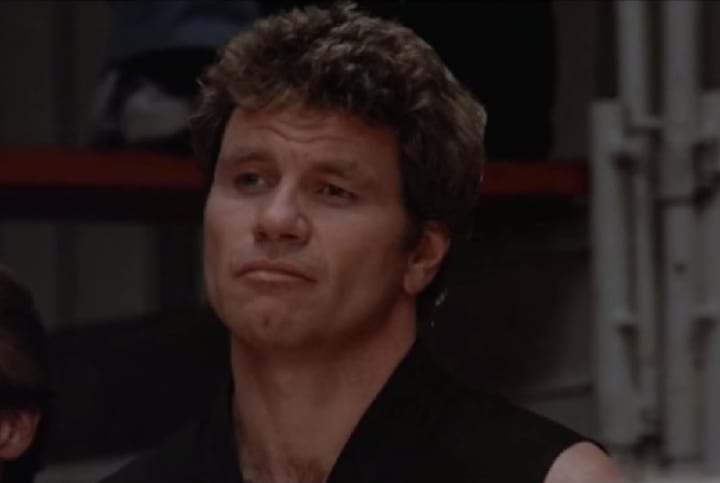
The Evil Rival Coach trope in sports films has one single purpose: be villainous at all costs. The Evil Rival Coach is put into sports films to make our heroes more easy to root for. The evil coach is offset against a good coach, with the opposition coach's negative characteristics contrasting with the central coach's positive attributes.
Examples of this trope are numerous. The Karate Kid perhaps had the most notable in John Kreese, the Cobra Kai dojo's sensei. Kreese is the karate trainer for Johnny Lawrence and his friends, who bully and beat up Daniel LaRusso, resulting in Daniel going to Mr Miyagi for training. Kreese is nothing more than a bully himself who will accept no mercy from his students. Famously, he asks one of his students to injure Daniel's leg in the karate tournament's semi-finals, hopefully forcing him to forfeit. In the final, he asks top student Johny to 'sweep the leg'.
In The Longest Yard, the prison warden tries to get Paul Crewe to throw the match, allowing the guards' team to win, or he will frame him for the death of fellow inmate James 'Caretaker' Farrell. In The Bad News Bears, Morris Butterworth faces off with coach Roy Turner, an overly-competitive and demanding coach who even strikes his son for not following and order. In a more comedic sense, Dodgeball's White Goodman falls into this category. The owner of Globogym offers rival team captain and Average Joe's captain Peter LaFleur $100,000 for the deed to his gym. LaFleur acceptance of the offer would force Average Joe's to forfeit the final of the dodgeball tournament to Globogym.
Whether you like them or not, the evil rival coach has undoubtedly played a role in creating entertaining and memorable sports films.
Training Montage
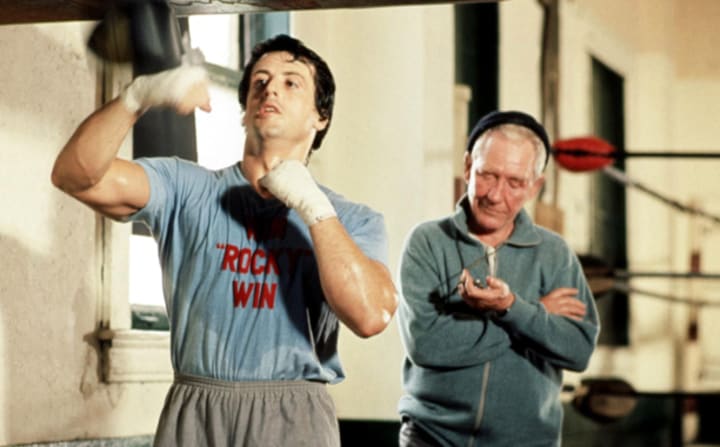
Here is another sports movie cliche that was popularised by the Rocky franchise. The problem? The filmmakers need to show how the central character/ team prepares for the big fight/match/event but has limited time to show this preparation. The answer? Put together a 3-4 minute montage comprised of clips of the lead character or team training and improving while an inspirational song plays over the top of said montage.
As mentioned earlier, the most famous sports training montages in cinema history come from the Rocky franchise. In every film, the audience is treated to a montage of Rocky training for an upcoming fight. After these montages, the fight would be shown. These montages were so famous that the songs used in these sequences were made iconic. From Bill Conti's 'Gonna Fly Now' in the first entry in the series to Survivor's 'Eye of the Tiger in Rocky III and the over-the-top greatness of John Cafferty's 'Hearts On Fire' in Rocky IV, the Rocky franchise was, and remains, the master of the training montage.
Other famous training montages include The Karate Kid that used Joe Esposito's 'You're The Best' to accompany the montage that shows Daniel-san progressing through the All-Valley Karate Tournament in the film's final act. Other sports films with amazing montages include Chariots Of Fire, Warrior and Cool Runnings, which took a comedic take on the classic training montage.
Do It For...
Sometimes, tragedy can bring a team closer together or drive an athlete onwards to achieve their ultimate goal. In this cliche, the death of someone close to the lead character(s) leaves our hero(es) feeling particularly low with the big event on the horizon. However, come the big day, the team comes together, wanting to win the big match for their absent friend(s). This cliche typically involves one character saying the line "Do it for (dead character)". With this person/people in their hearts and minds, the team is inspired onward towards success.
The first significant example of this trope came in 1940's football film Knute Rockne, All American. At the height of Notre Dame's gridiron glory, talismanic halfback George Gipp is struck down with a life-threatening illness, forcing him off the team. Gipp later dies of said illness. On his deathbed, Gipp tells Rockne to tell his former teammates to 'win one for the Gipper'. Gipp later dies of said illness. In The Longest Yard, the manager of the prisoner team James 'Caretaker' Farrell is killed on the eve of the prisoners vs guard football match by accidentally setting off a homemade bomb designed to kill teammate and lead character Paul Crewe. The death of 'Caretaker' inspires the 'Mean Machine to take the game to the guards' team and ultimately defeat them.
In 2006's We Are Marshall, Marshall University is rocked by a plane crash that results in the deaths of 75 people, including 37 members of the Thundering Herd university football team and the team's head coach. In the aftermath of this event, new head coach Jack Lengyel has to rebuild the team with 15 returning players along with members of other Marshall University sports programmes. The rest of the film is a significant example of the 'Do It For' trope, with Lengyel and the Marshall University team wanting to win to honour the crash victims' memories.
The Big Speech
Along with the training montage, the other major sports cliche on this list that manifests itself as a single moment is the big speech. Before the big match, at a tense moment in the game or when the team looks like they are beaten, one of the players or the coach makes a rousing and inspiring speech to lift the player's spirits. This great use of rhetoric is bound to work 9 times out of 10.
Fans of this genre will each have their own favourite 'big speech'. Many people call Al Pacino's 'fight for that inch' from Any Given Sunday as one of the all-time great sports movie speeches. Some people might like Matthew McConaughey's speech from We Are Marshall in which he declared 'The funerals end today'.The central moment that critics and fans remember from 2006's Rocky Balboa is Rocky's famous 'it ain't how hard you get hit' speech which many have believed had been said in an earlier film. From the 'Gettysburg' speech from Remember The Titans, 'This Is Our Destiny' from Invictus and 'I Don't Care What The Scoreboard Says' from Hoosiers, the 'big speech' is the perfect way to inspire both players and audience members as a sports film heads towards its final climax.
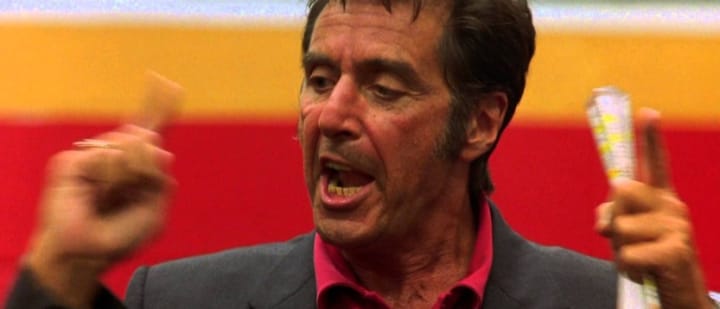
Losing With Dignity
Sometimes a sports film doesn't have to end with our hero(es) winning. Sometimes you can lose the big match and yet still come out a winner. Sports films have taught audiences that fact time and again. After all the training and hard work, the athlete or team in question enters the big match and pushes their much-better opponents to their limits. The person or group comes close to victory only to lose. However, despite losing the big event, the athlete/team earns the respect of their opponent and gains the crowd's affection.
Once again (as has been the case with most cliches on this list), the most famous example of the Losing With Dignity trope comes from Rocky. In the film's climax, Rocky takes world champion Apollo Creed right to the final bell. The judges announce Apollo the winner by a split decision, but even in defeat, Rocky proves that a local club boxer can match up with the world heavyweight champion through hard work and training. The franchise's spin-off Creed later echoed this sentiment, when Adonis Creed, Apollo's son who has been trained by Rocky, achieves similar results during his fight with WBC champion Ricky Conlan.
The 1976 baseball film The Bad News Bears and its 2005 remake also utilise this sentiment. Under the guidance of alcoholic former player Morris Buttermaker, the Bears reach the championship game. In a close match, Buttermaker realises that he has become too focused on winning and has mistreated his team as a result. Realising his mistake, Buttermaker removes his star players from the field and puts on his less-talented benchwarmers. The Bears are still competitive despite these changes but ultimately lose the match. Despite losing, the Bears still celebrate as if they've won.
In Cool Runnings, the Jamaican bobsleigh team crash their craft but ultimately earn the respect of their more experienced competitors who had previously written them off as a joke. In Coach Carter, another sports film based on a true story, high school basketball coach Ken Carter takes the brave decision of forbidding his undefeated Richmond team from playing until they improve their academic grades. After improvements are seen, the team returns to play in the quarter-finals of the state championship. The team lose their return match by a slim margin, but the audience is reassured in the knowledge that every member of the squad went on to graduate high school.
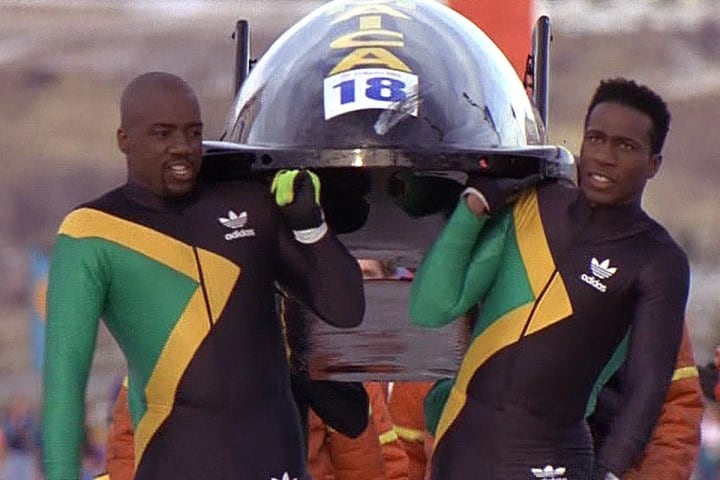
Even though sports are often seen as a 'results business', some sports films show that you can ultimately fail in winning the big event, but you can still leave the field of play with your head held high as long as you perform to your best.
Conclusion
Here are just a few major examples of cliches from the sports film genre. If you can think of any more and would like me to do a part 2 to this article, drop me a tip and I will consider doing one.

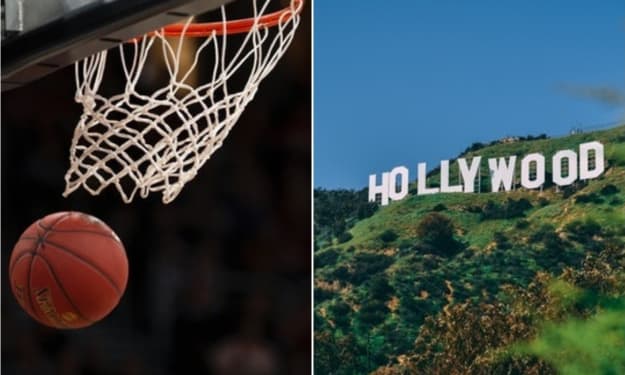



Comments
There are no comments for this story
Be the first to respond and start the conversation.